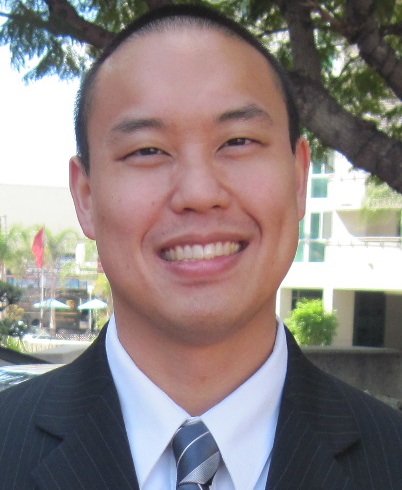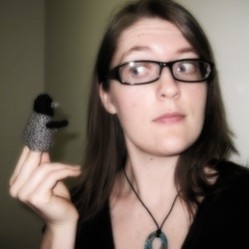Content note (click for details)
Content note: death of close family, griefI suppose being orphans made Jannah and I excel at animating. I think the ability blooms fiercest in children whoŌĆÖve experienced loss.
As brother and sister, weŌĆÖd been assigned to the Ming-Lelanges. That first day with them, they took us to the topiaries, where elephant and giraffe shrubberies guarded the lawns. Some relief from the cityŌĆÖs smokestacks, trains, and dirigibles. There, industrial pollutants had made keeping live animals impossible. But here, families strolled on the grass, among stone anima frozen in whatever poses theyŌĆÖd been left inŌĆönot real animals, but close enough.
Jannah sucked her thumb, watching children stare at stone puppies and kittens. The resultant living anima fetched balls. It was our first time seeing animation in practice, something that had gotten more popular as advancements in steam-engines drove animals further inland.
The Ming-Lelanges explained that moving anima wasnŌĆÖt just about seeing and remembering an animalŌĆÖs movement. Animating involved memory, but it was really about grasping the animalŌĆÖs essence: you had to comprehend a puppyŌĆÖs tail-waggingŌĆöits sniffing curiosity, its joyous face-lickingŌĆöto move something puppy-shaped.
ŌĆ£Your memories of the animal, your understanding of its spirit,ŌĆØ Steffer Ming-Lelange said. ŌĆ£You push that into the stone. Watch!ŌĆØ He frowned at a monkey-animus; it shifted, ambling stiffly across the grass.
Jannah shrieked with delight. ŌĆ£Like when we went to the zoo! With Mom and Dad!ŌĆØ
WeŌĆÖd been sad for so long over our parentsŌĆÖ deaths. I thought IŌĆÖd never see Jannah smile again.
Steffer strained at the monkey, but like other adults, his talent had faded. His husband Marle couldnŌĆÖt animate at all. The monkey ground to a standstill.
Suddenly, it somersaulted. Steffer turned to Marle. ŌĆ£That wasnŌĆÖt me.ŌĆØ
They saw me squinting at it. Mom had wanted to see the birds at the zooŌĆÖs aviary. IŌĆÖd whined it was too far, and Dad agreed. Mom had looked a little sadŌĆōbirds being so rare those daysŌĆōbut smiled it away. She stifled a cough. We saw the monkeys instead.
WeŌĆÖll see birds next time, Mommy! Jannah had said, tugging MomŌĆÖs hand.
SheŌĆÖd laughed. Next time, kids! Promise with a kiss!
Together, Jannah and I blew her one. MMM-wah!
My eyes got wet from the pit forming in my chest. I set my jaw and stared harder. The stone monkey cupped a hand to its mouth, and tossed it out, something IŌĆÖd seen the zoo monkeys do. A kiss for MomŌĆōtoo late. We never got a chance to see the birds. We never got to see MomŌĆÖs face light up at the wings fluttering in smogless air.
Steffer clapped. ŌĆ£Well done!ŌĆØ
I smiled, making the monkey eat imaginary bananas.
ŌĆ£WhereŌĆÖs Jannah?ŌĆØ Marle asked. The monkey froze mid-bite as I whirled around to look. The accident that had taken our parents was sudden. One moment we were together, the nextŌĆ” Jannah was all I had left.
A commotion from the topiaries.
The shrubs were trained with wicker-wireŌĆöframework evoking enough animal-shape for Jannah to aim her hopeful intent at.
ŌĆ£That wonŌĆÖt work, dear,ŌĆØ an attendant said. ŌĆ£Only the stone anima canŌĆöŌĆØ
The attendant gaped as, under JannahŌĆÖs stare, an elephant shrubbery tore loose.
Yes, during that zoo trip, weŌĆÖd seen elephants, too. Raising its trunk, the elephant trumpeted. It sounded offended. Upset. NobodyŌĆÖs ever explained how she did that. It was greenery, nothing that could actually make noise.
Afterwards, whenever anyone asked, Jannah only smiled.
As more attendants approached, Steffer and Marle winced at the damage, even as they laughed.
That night, Jannah came to my room. ŌĆ£I felt the elephantŌĆÖs spirit!ŌĆØ
I knew where she was going with that. As older brother, I had to explain the nature of death. I considered my words carefully.
ŌĆ£Elephants get angry, Jannah. They stampede and trample. But your shrubbery didnŌĆÖt do those things, because that wasnŌĆÖt an elephantŌĆÖs soul you pushed into that shrubbery. It was what you remembered. Your understanding of elephants in general. It was aŌĆ” recording. An impression.ŌĆØ
Jannah went quiet. ŌĆ£I donŌĆÖt remember any angry elephants that day at the zoo.ŌĆØ
ŌĆ£When people die,ŌĆØ I pressed, ŌĆ£nothing but bodies remain.ŌĆØ
ŌĆ£But something was there for me to pull that shrub. SoŌĆ” maybe MomŌĆÖs spirit is still around. Or DadŌĆÖs. We have to remember them!ŌĆØ
I shrugged. ŌĆ£WeŌĆÖre Ming-Lelanges now. ThatŌĆÖs not a bad thing. TheyŌĆÖre kind.ŌĆØ
ŌĆ£Mom and DadŌĆÖs spirits are still around.ŌĆØ
Her argument was tempting. And after she left, something nagged me. She was right. When we saw elephants at the zoo, none of them were angry. None of them trumpeted.
But animating made Jannah happy. Her nightmares stopped, though sometimes IŌĆÖd hear crying from her room.
*
And I?
IŌĆÖd have dreams of taking MomŌĆÖs handŌĆōsheŌĆÖd be wearing one of those dresses she couldnŌĆÖt help staring at as weŌĆÖd pass the fancy store windowsŌĆōnot in her workboots and hairnet. She wouldnŌĆÖt be coughing for once, and IŌĆÖd drag her to the aviary.
SheŌĆÖd turn and say, but what do you want to see, my darling son?
And IŌĆÖd say, Mommy, as if I were a toddler, but in the dream, I wouldnŌĆÖt careŌĆōMommy, look at all the birds you like.
And sheŌĆÖd frown to argue, but a bluebird would streak by and sheŌĆÖd gasp and forget she was dead.
And IŌĆÖd say, Mommy? I miss you.
But sheŌĆÖd be so enthralled by the birds she wouldnŌĆÖt turn immediately.
And IŌĆÖd wake, and IŌĆÖd be crying, too.
Not a memory. It wasnŌĆÖt even something I could properly lose.
*
Our fathers took us to a dinosaur museum, which was odd, because by then weŌĆÖd gotten into trouble animating things we werenŌĆÖt supposed to. Jannah didnŌĆÖt suck her thumb anymore, but manipulated the vaguest animal-shaped objects. These saurian bones were very tempting.
Jannah grabbed my hand. From ceiling strings hung a four-winged beast of long, swooping neck.
ŌĆ£Plesiosaur,ŌĆØ Steffer announced, reading from his brochure. ŌĆ£A swimming dinosaur; those wings are fins.ŌĆØ
JannahŌĆÖs gaze intensified, and Marle warned, ŌĆ£No animating!ŌĆØ
Her eyes refocused, and she frowned. ŌĆ£I canŌĆÖtŌĆ” ItŌĆÖs not a lizardŌĆ”.ŌĆØ
I stared at the skeletal fins fanning the air. ŌĆ£DonŌĆÖtŌĆö!ŌĆØ Steffer yelped as I thought hard of fish.
But I felt only blankness against PlesiosaurŌĆÖs remains. ŌĆ£I canŌĆÖt either! What gives?ŌĆØ
StefferŌĆÖs panicked expression was gone. Our fathers laughed, knowing all along we couldnŌĆÖt animate anything there.
ŌĆ£NobodyŌĆÖs seen a living dinosaur,ŌĆØ Steffer explained. ŌĆ£There arenŌĆÖt any memories to pull, so nobody understands their essence. Nothing remains of them. Except those bones, of course.ŌĆØ
ŌĆ£Nothing, nothing, truly nothing!ŌĆØ Marle sang.
Still, Jannah and I looked to Plesiosaur, neither lizard nor fish, something out of place as it dove with hollowed eyes and spiny teeth. Something broken. Pieced together. Lacking the spirit of the original whole.
*
Jannah and I attended competitions. Toymakers wheeled new anima designs on-stage, snatching off veils with flourishes for teams to animate. Once, SynerObjects unveiled a tarantula-animus, a delicate collaboration of woven straw. It baffled the other competitors, the entire auditorium. Nobody could elicit a tick of movement.
But IŌĆÖd seen one! Jannah had been a toddler, but weŌĆÖd gone to an insectarium. IŌĆÖd told Jannah about that day. Our parents were always so busy. They worked the factories, coming home tired, cheeks smudged, coughing from the soot. But they always took us to see animals.
I pushed my intent into the straw: the tarantula shuddered forth. The audience cheeredŌĆöthen gasped.
My tarantulaŌĆÖs jerky movements melted into sudden fluidity. The tarantulaŌĆÖs hairs bristled; it waved forelegs, mandibles twitching. Jannah was staring at it.
She rememberedŌĆ”
Or maybe IŌĆÖd described the memory so well she could picture itŌĆ”
We gained some fame after that. A journalist arrived in this sputtering contraptionŌĆöan automobile, yet another smog-producing device popular in the citiesŌĆöto interview Jannah about the trumpeting topiary-elephant. It had become a local legend, though she couldnŌĆÖt reproduce the trick. The journalist muttered into his notes. ŌĆ£A verum-animalis.ŌĆØ
Supposedly, talented animators could capture an animalŌĆÖs essence so perfectly, it was like the real thing.
ŌĆ£Have any other verum-animalis made noise?ŌĆØ I asked.
The journalist shrugged, finished scribbling. He had his explanation. We coughed as he drove his automobile away in a cloud reeking of burning rubber.
*
Randomly shaped objects couldnŌĆÖt be animated. Toymakers produced effigiesŌĆöthe more lifelike, the easier it was for children to animate. Otherwise, you carved your own.
As practice for our competitions, I started carving clumsy wooden anima. I was far better at carving gears and cogs, good for moving contraptionsŌĆōbut useless for animating. Toymakers created anima so lifelike, children readily evoked their animal spirits. But Jannah saw rabbits within my misshapen lumps, made them hop and nose-twitch. We visited zoos again. Jannah sketched a capybara once, detailing the fuzzy gopher head, the four-legged gait. Then I carved, and she animated.
I tried making dinosaurs, but our fathers were right. Nobody understood dinosaurs, so animating anything dinosaur-shaped was impossible. Jannah and I could move elephant- and monkey-anima only because weŌĆÖd seen them. Heaven forbid, if people forgot those animals, their essences passing into oblivion, effigies frozen foreverŌĆ”
How had Plesiosaur swum its long-lost oceans?
*
Steffer said animation faded with ageŌĆölike how languages came easier to children than adults. Therefore, adults couldnŌĆÖt make oxen-anima plow. The smog from the cities and their machines was getting unbearable. People had tried making children move work-anima, but even Jannah couldnŌĆÖt animate more than a few minutes. Steam, coal, and cold steel were how larger objects moved.
Then JambaToys debuted their self-moving anima. Jamba-puppies chased balls autonomously. If you looked away, they didnŌĆÖt freeze. They remembered and could be trained. It begged the exciting question: what else could move autonomously?
This was when JannahŌĆÖs illness struck, so I ignored all that. From her bed, Jannah smiled weakly at me. IŌĆÖd improved at carving, made effigies of our parents. Nothing serious, of course. The Dad-figure had his forehead scarŌĆōan old work injury; the Mom-figure had enough of her dimples to evoke our memories. ŌĆ£Jannah, do you remember what you said, that first night after the topiaries? If we remember Mom and DadŌĆ”ŌĆØ
She sat up, eyes sparkling. ŌĆ£LetŌĆÖs try!ŌĆØ
But the carvings wouldnŌĆÖt move. I didnŌĆÖt know that others had tried moving statues of people. Of course they had. What were statues but noble failures at capturing human essence? IŌĆÖd forgotten: nothing remained after death. Nothing, nothing. Truly nothing.
Jannah wilted beneath her covers. ŌĆ£I remember them! IŌĆ” doŌĆ”ŌĆØ
When she slept, I went outside and stomped my carvings into the ground.
That neither made the world a fairer place, nor made her better.
*
She worsened. She couldnŌĆÖt animate anymore.
Before IŌĆÖd carved those parent-effigies, Jannah believed something of our parents remained. But when nothing happened that night, her hope withered. I saw it in her eyes.
Going through our old sketches and carvings, I paused over my dinosaurs.
Plesiosaur fascinated us because if we evoked its long-lost essence, that meant Jannah was right. That our parentsŌĆÖ spiritsŌĆöwho werenŌĆÖt so long-lostŌĆömight also remain.
SoŌĆ” if I made a plesiosaur-animus move? Would that restore JannahŌĆÖs smile?
Steffer and Marle wept when I asked, but they procured the puppy-sized Jamba-lizard I requested. Something to cheer Jannah up. I studied the curious switch along its underside, toothed gears and cogs inside, connecting eyes and claws. Very clever.
But the ley-stone nestled withinŌĆöthis was what the journalists were writing about. JambaToys had devised a method to transcribe animal-essencesŌĆömemories, impressions, recordings, whatever essences really wereŌĆöinto these stones, which moved the cogs and gears. The argument was that work-anima were possible now. The particulates in the air made keeping live oxen in the cities untenable, yet carved versions could pull, if someone would just invent ley-stones big enough to move a workable model.
I stared at the ley-stone.
This one contained a lizard. Not Plesiosaur. Nobody could pull PlesiosaurŌĆÖs essence into a ley-stone, because nobody remembered it. It had passed beyond earthŌĆÖs memory, and could never be recalled again.
I frowned over its pebble-like surface until my eyes watered.
I just wanted to see her smile again.
Why couldnŌĆÖt I have that?
*
ŌĆ£HowŌĆÖd you make the elephant trumpet?ŌĆØ I whispered after the nurse left.
JannahŌĆÖs tired gaze touched mine. She couldnŌĆÖt talk anymore.
ŌĆ£I think you filled that shrub so full of elephant-spirit it forgot it was a shrub.ŌĆØ I placed my carved Plesiosaur onto her bed. My best work yet. ŌĆ£Make this forget it’s wood.ŌĆØ
She blinked tiredly, but I knew what she meant. WhatŌĆÖs the use?
ŌĆ£Try,ŌĆØ I pleaded.
She sighed, but her hazy gaze intensified.
I bent forward, moving slowly. ŌĆ£Remember how much Mom loved birds,ŌĆØ I whispered. ŌĆ£Remember how badly she wanted to see birds that day at the zoo! Remember her smileŌĆōthat you have. Remember DadŌĆÖs funny faces. Remember how he always let us win arguments if we whined long enough. All the food they cooked for us. Not even Steffer and Marle could ever cook like that. Remember, Jannah! Remember, rememberŌĆōŌĆØ
My voice! I was choking up. Her eyes were filling up with the rememberingŌĆōmine too. I clicked the switch under the carvingŌĆÖs belly.
Plesiosaur dove onto her sheets. Jannah sat up as it searched her blankets for fish, swooping neck and fins to and fro. She knew she wasnŌĆÖt animating it; we heard the gears within. Now that it moved, the Plesiosaur showed mechanized joints.
Still, she smiled at me. I love you.
No magical transference of long-lost spirits. No verum-animalis. Just a jerry-rigged lizard-stone, repurposed cogs and gears. The memory of our parentsŌĆÖ unending love, a force that would never leave this earth, even if their spirits had gone. A mundane trick, really.
But IŌĆÖd gotten that smile, hadnŌĆÖt I?
*
I have children of my own now.
TheyŌĆÖll ask what happens after death. IŌĆÖll explain how people say we leave this world forever. How itŌĆÖs said when people depart, nothing remainsŌĆönothing, nothing, truly nothing. As long as weŌĆÖve been good people, that is fine.
IŌĆÖll tell them how dire our world once was, where the animals and trees almost died out in our quest for industry and production.
IŌĆÖll take their hands, lead them through my companyŌĆÖs workshops, past easels of penciled designs, past historic prototypes of larger ley-stones hooked to voltaic piles. IŌĆÖll open the drawers of my schematics showing combined ley-stones moving separate parts, a horse-stone moving a cog-butlerŌĆÖs legs, a monkey-stone moving the fingers. These strange objects that have allowed birds and bees and plants to return.
IŌĆÖll pause here, because this part will hurt.
When IŌĆÖm ready, IŌĆÖll tell my darlings that before self-moving ornithopters, steam-horses, and cog-butlers, there lived a girl who made an elephant shrubbery uproot itself and trumpet. A girl who loved zoos and animals and smiling, whom I loved as much as I love each of them. IŌĆÖll tell them that in the age of smog, there lived a girl who had the heart of a dinosaur, something untetherable to this world, something too great for earthŌĆÖs deep fossil memory to anchor within coal or bones. Like her beloved parents before her, this girl is gone, and nothing, nothingŌĆötruly nothingŌĆöremains.
Then IŌĆÖll show them Plesiosaur.
IŌĆÖll let it swim along the floor, searching, searching for something long-lost. ItŌĆÖll stop eventually. It always stops. IŌĆÖll open my very first self-moving animus, let my children gasp at its primitive workings, its aged switch. IŌĆÖll close Plesiosaur, set it back down.
ŌĆ£Wait,ŌĆØ IŌĆÖll say. ŌĆ£LetŌĆÖs reconsider.ŌĆØ
For if nothing remainsŌĆönothing, nothing, truly nothingŌĆöthen why, when I stare at Plesiosaur and remember Jannah, will it move again, lizard-stone darkened, gears cracked, and my talent long vanished?
┬® 2022 by Andrew K Hoe
2580 words
Author’s Note: This story was based on sibling-love. In real life, I disagree with my siblings at times. I doubt my family is the only one that struggles to connect. Despite the anger and miscommunication, I think a lot of familial love is ever-present–like a star we cannot see, radiating violent energy, stubbornly pressing light into the darkness. It doesn’t disappear. Somehow, I got plesiosaur into it, and the idea of children being able to do a sort of magic that fades as they mature. I didn’t know it at the time, but I think I wrote this fading magical ability to represent how sibling relationships can be so effortless as children, yet the older we grow, the greater the chance we drift apart. Then the environmental themes with smog and steam entered the mix. An earlier draft of this story was rejected at another venue with promising comments, though the first readers there rightly told me I needed to work out exactly how animating worked. They also thought it was perhaps confusing to mix magic with steampunk. Was this a fantasy story, or a science fiction one? These comments echoed what a writing group I attended at the time told me: this story was genre-confused. I almost gave up on this tale, but I’m thankful I kept trying and that Diabolical Plots accepted this fantasy-ish, steampunk-ish tale.

Andrew K Hoe is an Assistant Editor at Cast of Wonders and a college professor. He is thrilled to have a second story published at Diabolical Plots. His stories also appear at Cast of Wonders, Highlights for Children, Young Explorer’s Adventure Guide, and other venues. He has three siblings who sadly cannot animate animal-shaped objects, but will live for many years yet. He has a nephew who loves dinosaurs and a niece who has an adorable smile. They will both live for many, many years yet.
The previous story by Andrew K Hoe that appeared in Diabolical Plots was “Finding the Center” in August 2020. If you enjoyed the story you might also want to visit our Support Page, or read the other story offerings.





